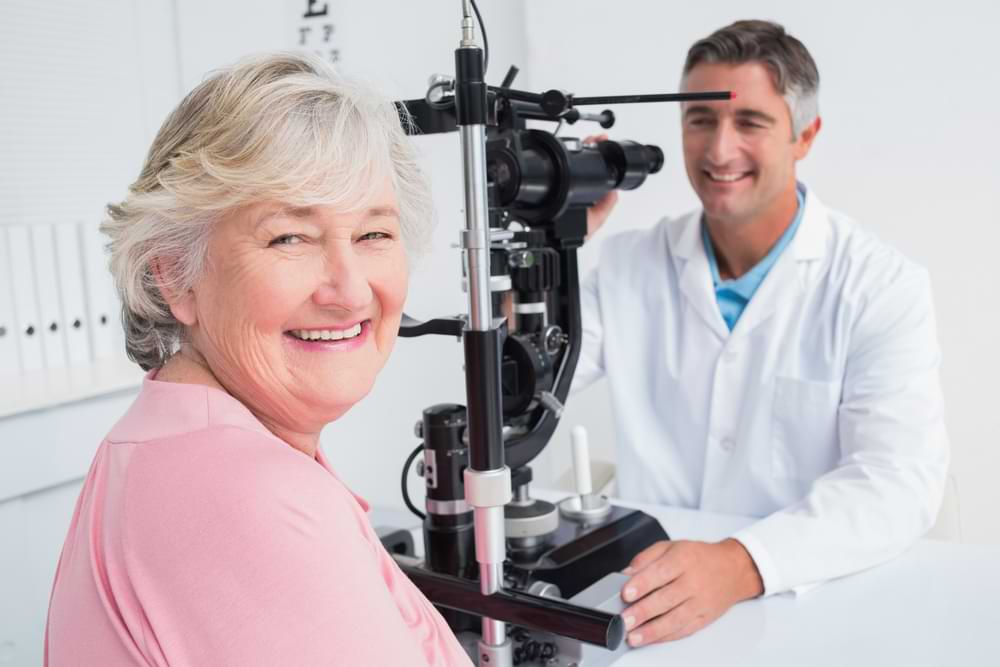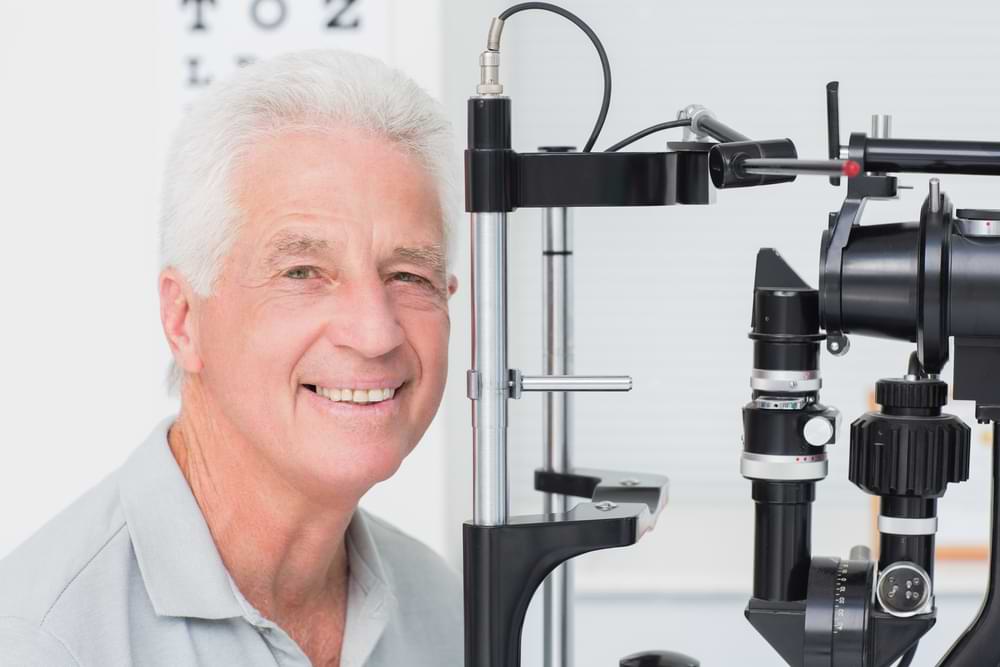Macular Degeneration Treatment in Melbourne

Did you know that not all forms of age-related macular degeneration (AMD) are the same, and the treatment options can vary widely? Contrary to popular belief, even more aggressive forms of AMD, can be managed effectively with the right treatments.
In case we haven’t met, I’m Minh Van Tran, the owner and principal optometrist at VisionPro. My passion lies in offering comprehensive eye care, particularly to the elderly in our diverse local communities. Our optometry practices in inner west Melbourne stand out because we understand the unique needs of our local patients and work hard to make a real difference in their lives through personalized eye care. Being a part of this vibrant community and contributing to its wellbeing is what drives me every day.
Knowledge about macular degeneration treatments in Melbourne can bring hope for those experiencing the fear associated with vision loss. But failing to seek proper treatment might result in a reduction of your ability to drive, read, or see the faces of your family, profoundly affecting your quality of life.
Secure your vision’s future now by scheduling a consultation with us; your eyes deserve the best care available.
Not quite ready to book an appointment? Then keep reading to discover more about how you can protect and enhance your vision health.
Understanding Age-Related Macular Degeneration (AMD)
Age-related macular degeneration (AMD) is a leading cause of vision loss for older adults. AMD affects the macula, a small area at the center of the retina that is crucial for sharp, central vision. Regular eye checks are crucial to detect any signs of AMD early.
At VisionPro, our eye exams involve a series of tests to assess vision clarity and eye health, which may include:
- Visual Acuity Test: Measures how well you see from various distances, helping to detect vision loss associated with AMD.
- Amsler Grid Test: Assesses for visual distortions, a common symptom of AMD, by having patients view a grid of lines to identify any warping or missing areas.
- Retinal Imaging: Provides a detailed look into your eyes, allowing us to detect early signs of AMD, such as yellowish or whitish deposits that form beneath the retina.
- Optical Coherence Tomography (OCT): Offers cross-sectional imaging of the retina, revealing the thickness of the macula and any fluid buildup, crucial for diagnosing both dry and wet AMD.
- Dilated Fundus Examination: Uses eye drops to widen the pupil, enabling a thorough inspection of the retina, optic nerve, and blood vessels.

Treatment for Macular Degeneration in Melbourne
Age-related macular degeneration comes in two forms, Dry AMD and Wet AMD. With prompt action, there are a variety of treatments available for each, to preserve vision and prevent further deterioration.
Dry AMD Treatment
Dry AMD is a common condition that progresses slowly, causing a gradual loss of central vision. One of the primary treatments for dry AMD is nutritional supplementation. The AREDS (Age-Related Eye Disease Study) formulas contain essential nutrients like lutein, zeaxanthin, zinc, and vitamins C and E. These nutrients can help protect the retina from further damage, potentially slowing the progression of dry AMD.
In addition to supplements, making lifestyle changes can also aid in managing dry AMD. A diet rich in antioxidants, including leafy greens, berries, and nuts, can support overall eye health. It’s also important to avoid harmful habits like smoking, which can increase the risk of AMD progression. Reducing UV exposure by wearing sunglasses can also protect the retina from further damage.
Regular eye exams play a crucial role in managing dry AMD. These check-ups allow for early detection of changes in retinal health, enabling immediate intervention and treatment adjustments. Tests can help monitor the condition’s progression, allowing for a proactive approach to managing dry AMD.
Research into new treatments for dry AMD is ongoing, offering hope for future advancements. Studies explore various drugs that could slow macular cell degeneration or enhance cell function, potentially improving patient outcomes. These emerging treatments could offer additional options for managing dry AMD effectively in the future, providing further hope for those affected.
Wet AMD Treatment
Wet AMD is a more aggressive form of AMD that can lead to rapid vision loss. This occurs when abnormal blood vessels grow beneath the retina, leading to leakage or bleeding, which causes vision distortion. One primary treatment for wet AMD is intravitreal injections. These injections deliver anti-VEGF (Vascular Endothelial Growth Factor) medications directly into the eye, inhibiting abnormal blood vessel growth and reducing the risk of further leakage or bleeding.
Another option for treating wet AMD is laser therapy. This procedure uses a high-energy beam of light to destroy abnormal blood vessels, preventing further leakage. By targeting these vessels directly, laser therapy helps to reduce the progression of wet AMD, preserving vision.
Photodynamic therapy is another treatment option for wet AMD. It involves injecting a light-sensitive drug, Verteporfin, into the bloodstream. This drug then accumulates in abnormal blood vessels, and when activated by a laser, it destroys them, minimizing leakage and bleeding.
Emerging treatments for wet AMD are constantly being developed. Research is exploring gene therapies and new drugs targeting various pathways involved in the condition. These advancements offer promise for improved management of wet AMD, helping to slow its progression and preserve vision more effectively.
To ensure comprehensive macular degeneration treatment in Melbourne, we provide personalized treatment plans, guiding patients through all available options. If necessary, we can refer you to a highly skilled ophthalmologist and co-manage your recovery process. We aim to not only manage symptoms but also improve quality of life.
| Dry AMD | Wet AMD |
|---|---|
| Nutritional Supplements: AREDS (Age-Related Eye Disease Study) formulas, containing lutein, zeaxanthin, zinc, and vitamins C and E, can slow progression. | Intravitreal Injections: Anti-VEGF (Vascular Endothelial Growth Factor) injections, such as Avastin, Lucentis, or Eylea, inhibit abnormal blood vessel growth. |
| Lifestyle Modifications: Adopting a diet rich in antioxidants, quitting smoking, and reducing UV exposure to protect retinal health. | Laser Therapy: Uses a high-energy beam to destroy abnormal blood vessels and prevent leakage, reducing progression of wet AMD. |
| Regular Monitoring: Frequent eye exams to track AMD progression and adjust treatments as needed. | Photodynamic Therapy: A light-sensitive drug, Verteporfin, is injected, and then activated by a laser to destroy abnormal vessels. |
| Emerging Treatments: Research is exploring drugs to slow macular cell degeneration or enhance cell function. | Emerging Treatments: Advances include gene therapies and new drugs targeting different pathways involved in wet AMD. |
If you would like to know more about some recent promising research into preventing AMD, watch the following video. Dr. McKay is a professor in the Department of Ophthalmology and Vision Science at the University of Arizona College of Medicine – Tucson. He’s hopeful that his research will lead to a treatment that prevents blindness for many people.
Why Choose VisionPro for AMD Treatment
At VisionPro, I understand how crucial it is to manage AMD effectively. My approach combines expertise and experience, making VisionPro a reliable choice for macular degeneration treatment in Melbourne.
VisionPro’s comprehensive eye health examinations are designed to detect AMD early, allowing for immediate intervention. Our eye exams include detailed retinal imaging, which helps assess the health of the macula and identify AMD symptoms. This leads to tailored treatment plans that address each patient’s unique needs.
We also focus on providing support beyond medical treatment. I guide my patients on lifestyle modifications, dietary changes, and managing daily life with AMD. This holistic approach ensures patients not only receive medical care but also have the tools and knowledge to help maintain their vision health.
CONCLUSION
Understanding the difference between dry and wet macular degeneration is essential, as each type requires a unique approach to management and treatment. Lifestyle changes, along with professional support and resources available here in Melbourne, play a significant role in managing AMD and preserving quality of life.
Procrastination only leads to regret. Whereas proactive AMD treatment can make a huge difference.
Scheduling an eye exam appointment is the first step to restoring or maintaining quality of life.
Click on the “BOOK AN APPOINTMENT” button OR call either our St. Albans (03) 9364 5509 or Footscray (03) 9687 8787 optometry practices.

Minh gained his Bachelor of Optometry in 2000, and his Certificate in Ocular Therapeutics (ACO) in 2016.
He started VisionPro Optometrists in 2008 and has been Principal Optometrist ever since, working in both the Footscray and the St Albans practices.
Minh is a member of Optometrist Association Australia and the ACO. He always strives to achieve the highest standard of professionalism when delivering eyecare to all his patients.
Minh’s special areas of interest include ocular diseases and management, children’s vision and contact lens fitting. Minh enjoys travelling and reading in his spare time.
